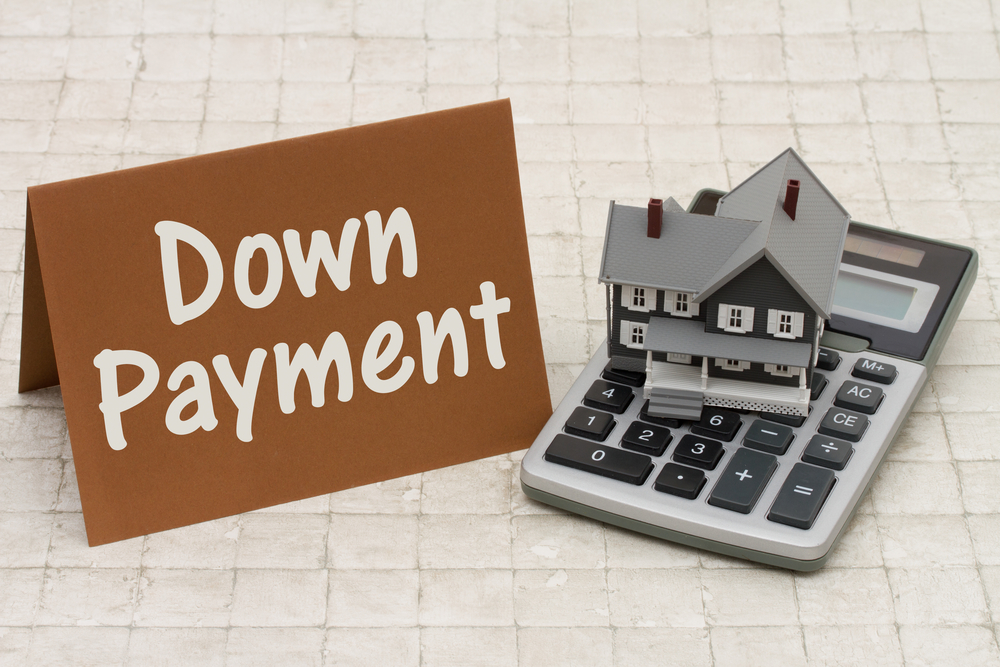
Buying a home is one of the most significant investments individuals or couples will ever make. Since purchasing usually requires the prospective homeowner to initiate a mortgage loan, the lender may ask for a down payment or a substantial amount of money to be paid in advance.
Typical down payment amounts for a primary residence may range from as little as 0% to up to 20% of the total purchase price.
Why Do lenders Require Down Payments?
Because mortgage lenders take on the risk that a borrower may default, they often ask for a “down payment” representing a certain percentage of the purchase price.
Suppose the borrower defaults sometime later, at which point the lender regains full ownership of the property. In that case, they naturally want the return from liquidating the property to meet or exceed the original mortgage amount.
For example:
- Assume a property is listed for sale at $200,000.
- The prospective buyer qualifies for a $160,000 mortgage with a 20% down payment.
- The borrower submits a $40,000 down payment that equals the purchase price when combined with the borrowed $160,000. In addition, the buyer becomes responsible for the monthly mortgage and interest payments, local tax obligations, and insurance premiums.
Should the borrower default, the lender will expect to liquidate or resell the property to recover at least the unpaid balance of the original loan.
However, lenders often accept a smaller percentage down payment under certain conditions than the traditional 20%.
Advantages and Disadvantages of Higher and Lower Down Payments
Homebuyers experience both advantages and disadvantages when paying a lower down payment.
A higher down payment:
- May qualify the buyer for a better interest rate.
- Will Reduce the monthly principal and interest expense since the total amount borrowed is less.
- Can qualify the buyer for a more expensive property at a possibly lower interest rate than if a smaller percentage down payment is offered.
- Allows you to pay less interest in total over the life of the mortgage.
- Improves the all-important debt-to-income (DTI) ratio, a vital statistic when borrowing.
A lower down payment:
- Allows the buyer(s) to move quicker, perhaps to secure the “home of their dreams” when it suddenly becomes available.
- Preserves capital for other investments, commitments, or repairs and upgrades to the new home.
- Usually demands a higher interest rate.
- Increases the monthly principal and interest payment for a similar mortgage type.
- May require the buyer to purchase PMI (Private Mortgage Insurance), an additional monthly expense, to protect the lender’s risk in case of default. Borrowers are often required to pay PMI premiums until their home equity reaches 20%.
Calculating Your Monthly P&I (Principal and Interest)
To determine the differences in the principal and interest payments, prospective buyers can discuss terms with their lender or look for any online mortgage calculator to determine the cost differences.
To calculate various scenarios, you will need to enter the following:
- Purchase price.
- Down Payment (Amount or Percentage of purchase price).
- Length of the Mortgage (15-year, 30-year, or other).
- Interest Rate for each mortgage scenario.
- With these data points, the Calculator determines the Monthly Principal and Interest.
But, when determining the impact of the new mortgage debt on your monthly finances, you (and your lender) will also need to address the corresponding:
- Insurance costs.
- Taxes.
- PMI, where required.
Lenders may demand that these costs be included with the principal and interest in the monthly payment and placed in escrow until they are due.
VA Home Loans
One of the lifetime benefits granted to Honorably Discharged Veterans of the US Armed Forces is the automatic qualification for VA (Veterans Administration) Loans. These benefits, initiated toward World War II, were developed to reward returning veterans by making homeownership easier. Since then, millions of veterans have taken advantage of the no-down-payment-required and fully insured loans to purchase their homes, farms, and even businesses.
FHA Loans
FHA (Federal Housing Administration) Loans are also an option for homebuyers who choose to proceed with less than 20% down payment. Lenders will require the buyer to pay an FHA mortgage insurance upfront and annually to protect against losses from a default.
FHA loans are, however, often beneficial by offering more competitive mortgage rates, lower closing costs, and credit requirements.
Performing Due Diligence
Besides being the most significant investment in most people’s lives, a home purchase is often the highest returning financial investment they will ever incur. In recent years, the combination of low interest rates and rising home buyer demand have resulted in record returns for many homeowners. While this situation is not likely to last forever, history shows that a well-thought-out homebuying plan pays off in many ways.
Prospective buyers should consult with one or more lenders to determine the right balance between the purchase price, down payment percentages, mortgage rates, cash flow, and capital preservation before making any quick decisions. In the current historically low-interest-rate environment, locking in a mortgage loan can be an excellent decision as long as buyers do not overburden themselves.
Marimark Mortgage
Marimark Mortgage is based in Tampa, Florida, and serves the mortgage needs of homebuyers, homeowners, and investors in Florida, Virginia, and Pennsylvania.
We specialize in mortgages for first-time homebuyers, conventional home mortgages, refinance loans, reverse mortgages, and FHA, VA, and USDA mortgage options. In addition, we’ve worked extensively with cash-out refinancing and help clients to lower their monthly mortgage payments.
To get started with a mortgage to buy your next home, please fill out our Quick Mortgage Application or contact us.

The Marimark Mortgage Newsletter will keep you informed with important events in the mortgage industry that could impact your finances.
We especially focus on ways to save money on your current and future mortgages. And, we continually share the information we share with our clients, because we believe informed consumers are the best consumers.
Real estate agents, and other professionals in the industry, will receive an ongoing wealth of information that will help them serve their clients.